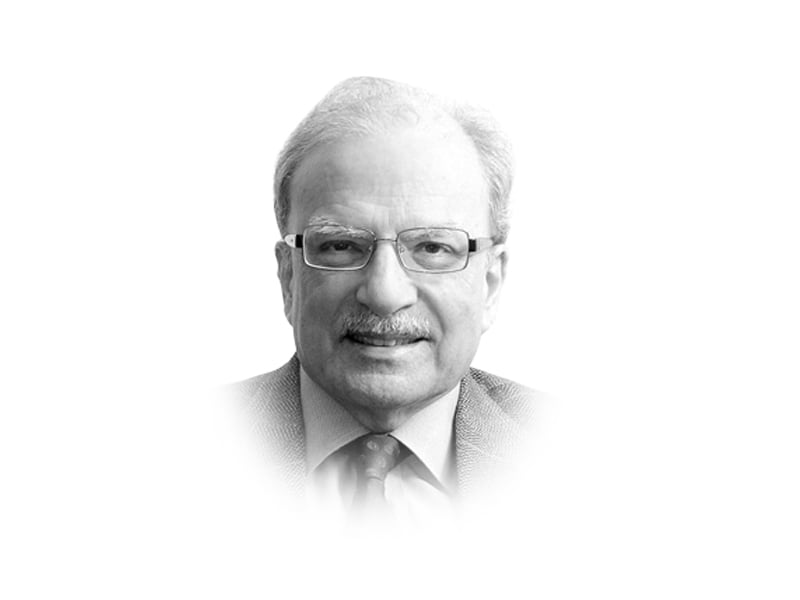
What makes a great power a superpower? Does global governance dominated by a couple of players produce better results for the world as whole? The answer to the first question is simple: most of its people and most of those who hold the reins of power must pull and push their country in the same direction. The answer to the second question is not obvious. Multiple centres of power can result in wasteful use of resources and division among nations that are counterproductive. This is the case when those who are competing for global dominance follow different ideologies of governance.
Two recent examples of this phenomenon are the United States and what was once the Union of Soviet Socialist Republics, the USSR. Both became superpowers after they had participated in defeating the authoritarian regimes of Europe in the Second World War. In the United States, President Franklin Delano Roosevelt was able to motivate his people to join the democratic regimes in Europe to fight the German leader Adolf Hitler and his Nazi Party. Thus motivated, people worked hard and made great sacrifices to beat back the Nazis. In the USSR, the push came largely from the leadership dominated by Joseph Stalin who had succeeded Vladimir Lenin as the head of the Communist Party. However, what is Russia now was governed by a ruthless dictator who did not tolerate dissent. He took his people in the war against Germany even if the popular support for such a move was at best weak.
The collapse of the USSR and its breakup into its constituent parts reduced Russia’s global presence. The recently deceased Mikhail Gorbachev didn’t want to follow the direction in which the once superpower had gone and was expected to proceed. The new Russian leader did not have a problem playing a secondary role in the global order. In 1991, when Gorbachev’s policies led to the breakup of the USSR, the United States was left alone as the world’s sole global power. Did Gorbachev intend the outcome his policies of openness and reform produce? This question was debated by historians who reexamined what had become conventional wisdom about the performance of the late Russian leader? Alternate history is enjoying a modest revival, a discipline in which some of the assumptions made in telling the old story were no longer valid. According to Paul Musgrave, a professor of history at the University of Massachusetts at Amherst, Gorbachev did not aim to make the Soviet Union more like the West. The Soviet leader “believed communism, suitably modified, would ultimately outcompete capitalism. For Gorbachev and others steeped in the Soviet system, the ultimate course of history was no less certain than for Americans — the timeline just needed some tweaking to come out right.”
To remain the leader of the world, Americans will have to change the way they deal with their evolving situation. They are much more divided within and would have to resolve the differences that are pushing apart the various parts of the country that not too long ago was unified with basically one set of values and interests. This was the theme of the uncharacteristically strong 24-minute message given by President Joe Biden from outside the Independence Hall in Philadelphia in which two hundred and fifty years ago the fathers of the United States founded the new country. His focus was on Donald Trump, his predecessor, who continued to campaign to overturn the result of the election held in November 2020. Biden cited the “extraordinary experiment of self-government” represented by the American Constitution and the Declaration of Independence , saying that “history tells us a blind loyalty to a single leader and willingness to engage in political violence is fatal to democracy.” The reference was, of course, to Donald Trump and his MAGA followers. MAGA was the acronym for “Make America Great Again.” That was the theme of Trump’s inaugural address on January 20, 2017. “Donald Trump and the MAGA Republicans represent an extremism that threatens the very foundations of our Republic. But there’s no question that the Republican Party toady is dominated, driven and intimidated by Donald Trump and the MAGA Republicans. And that is a threat to this country.” Biden was speaking to a divided nation. However, most conservative commentators did not share the president’s pessimism about America’s future. According to Ross Douthat who writes for The New York Times, Trumpism is actually too weak to credibly threaten the democratic order.
At this time there are three great powers that could aspire to become superpowers. If the United States is able to address the many problems the country currently faces, it could once again become the unchallenged superpower. That was the position it occupied after the collapse of the USSR but moved back under the presidency of Donald Trump. When he assumed office on January 20, 2017, he said in his inaugural address that he wanted to pull back from the world. Only then, he proclaimed, that America would become great again. Millions of his admirers wore red hats that carried the MAGA slogan in bold letters. They continued to do so even when he left the White House. With America deeply divided, could another power fill the space it seems to have vacated? Could Western Europe centred around Germany be the new superpower?
Zeitenewend was the theme of a recent speech given by German Chancellor Olaf Scholz in Prague. The term in the German language means “turning of the times”. He explained that Germany had “undergone a fundamental change”. He affirmed German support for a stronger, more integrated Europe — one that would welcome members that aspire to Europe’s democratic values and ideal. “On one level, this is indeed a dramatic shift,” wrote Fareed Zakaria in his column that appears every Friday in The Washington Post. “Yet it is also the continuation of remarkably consistent German attitude toward Europe and the world since 1945. Think how different the world would look if we did not have at the centre of Europe its most powerful nation — the country that is largest net contributor to the European Union — totally committed to democratic and liberal values and willing to make sacrifices for them. Germany today is the rock on which a new Europe is being built.”
What makes Germany look great even without being associated with the rest of Europe is the remarkable set of leaders since the end of the Second World War. Most of them were underestimated when they rose to the top of the German political system. The line begins with Helmut Kohl who reunified Germany after Gorbachev, at Ronald Reagan’s urging, agreed to pull down the wall built to separate East Germany from West Germany. The line continued with Willy Brandt, to Helmut Schmidt, to Angela Merkel. No other country — developed or developing — can match this lineup. Add the rest of Europe to Germany, and we are looking at a new superpower. It is not the United States and China around which the new bipolar world would be constructed. We are looking at a tri-polar world structured around America, China and Western Europe.
Published in The Express Tribune, September 12th, 2022.
Like Opinion & Editorial on Facebook, follow @ETOpEd on Twitter to receive all updates on all our daily pieces.
COMMENTS (3)
Comments are moderated and generally will be posted if they are on-topic and not abusive.
For more information, please see our Comments FAQ



1730752226-0/Untitled-design-(35)1730752226-0-165x106.webp)




1729685382-0/Untitled-design-(57)1729685382-0-270x192.webp)


1730706072-0/Copy-of-Untitled-(2)1730706072-0-270x192.webp)
Western Europe has created its own demons to fight. People s declining faith in the EU fuelled by rising tide of populism poses a serious challenge. So is the case with India. India s biggest obstacle to glory is its unjustifiable bromance with religious fanaticism and extremism.
I can partly agree with this formulation. Undoubtedly Eurozone has the potential which it has sadly allowed to go waste. Problem is Western Europe or the Eurozone never even attempted Fiscal Union and this has badly divided Europe in face of crises arising out of Corona China and Ukraine. Some semblance of Unity has happened in NATO at rhe behest and under the leadership of US. It is India which exemplifies what Eurozone could have been. India today is the potential third and most importantly the swing or umpire power that the badly divided world needs. Ofcourse it is upto future to show whether India does deliver on it s potential
Europe has been weakened by US as is currently revealed.